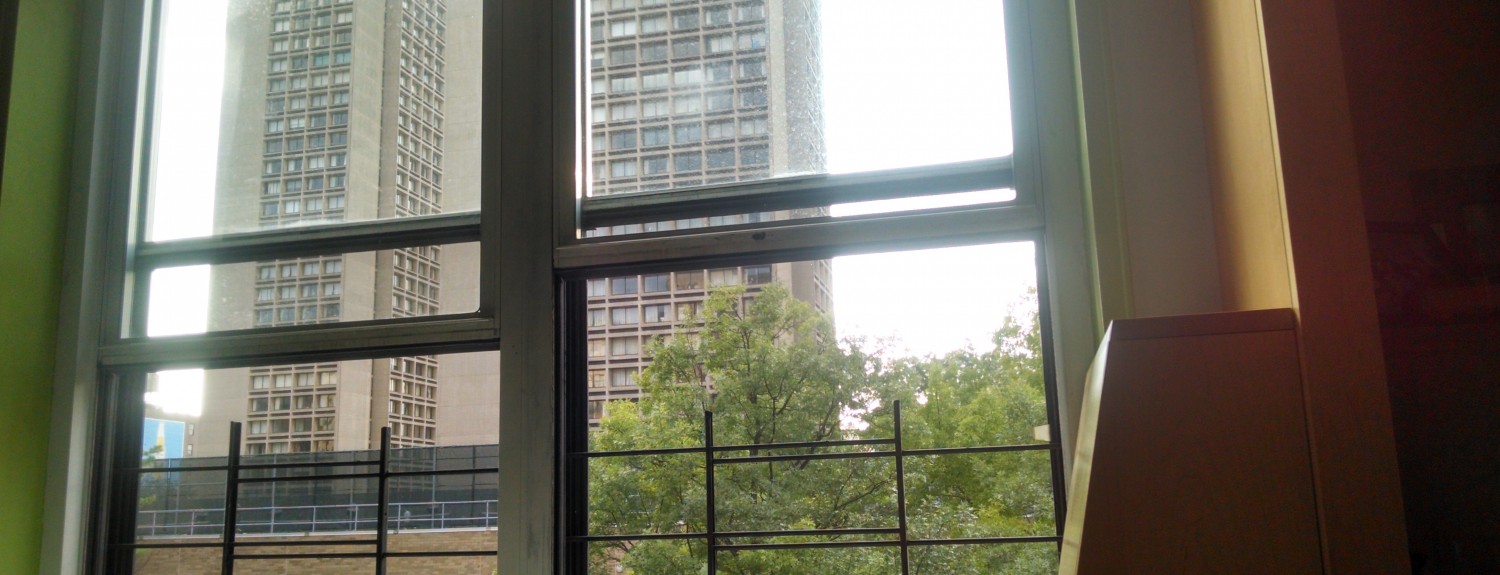News
Residents Fear Noise, Dust of NYU Construction
As early as year-end 2014, New York University will break ground on its NYU 2031 expansion, adding roughly six million square feet of space to the campus.
A small part of that plan includes construction of four new buildings in Greenwich Village. Among them is the Zipper Building, which may rise as high as 26 stories. It is slated to replace the current, five-story Jerome S. Coles Sports Center.
As planned, Zipper will sit across from 88 Bleecker St., a co-op apartment complex whose occupants have been pushing NYU to protect them from the steady dust and boom of nearby NYU construction.
“Living in this building will be dangerous,” said Les Gallo, who lives in one of 88 Bleecker’s 107 apartments.
Gallo and other residents fear, for one, that without special, double-glazed windows or other means of buffering their homes from the noise of daily construction, they will be subjected to sounds far beyond loudness limits that New York City regulators allow.
The double-paned windows now at 88 Bleecker were installed in 1981 and lack the noise reduction capacity of newer windows.
NYU agreed to provide state-of-the-art, noise-mitigating windows for a residential building at 200 Mercer St., just north of the Zipper building site, and for 81 Bleecker St., just south of Zipper.
Thus far, 88 Bleecker Street has not been listed among buildings to receive noise-mitigating windows. That makes no sense to residents, some said.
“Based on their own science, we’d receive significant impact,” said Glen Milstein, a 13-year resident of 88 Bleecker and vice president of the co-op’s board of directors
Yet, NYU’s evaluation of the current windows, and whether they would suffice in keeping out the construction noise, consisted solely of campus officials “walking by” the building, Milstein added.
The planned demolition of the Zipper Building has compounded co-op residents’ worries. How will that construction dust be contained? Will exposure to visible and microscopic dust result in respiratory illnesses among some people who inhale it? Will walled air conditioners in the co-op units draw in dusty air from the outside? Will the hazards be especially high for children and the elderly?
“NYU has refused to come into our homes and see our vulnerability,” Milstein said.
But university officials seemed to have promised to do that and more, residents said.
A provision of NYU’s “Restrictive Declaration of Large-Scale General Development” plan, issued in July 2012, calls for windows to be installed in buildings that NYU engineers determined would experience an adverse impact from construction.
Those windows would be installed before the construction groundbreaking for the planned Zipper tower, according to a July 2014 NYU press release regarding its planned protections for some affected buildings in and around Washington Square Park in fall 2014.
Eighty-eight Bleecker straddles Washington Square Park.
In 2012, Alice Hurley, NYU vice president for government affairs and community engagement, said the university would work with “individuals and small groups to discuss special mitigation procedures such as extra filters on air-conditioning, sound proof windows …” according to notes posted on the NYU website.
Hurley had not responded to repeated efforts for comment from The Spectrum when this news article posted.
“It’s been an astonishment to watch democracy derailed,” Milstein said, of NYU’s current silence on whether or not 88 Bleecker will get new windows and, perhaps, other protections from the coming construction.
And while potentially excessive construction noise and dust is a major concern, it also has been hard to watch the overall change that NYU’s ongoing growth has meant for his neighborhood, Milstein added.
Milstein said his two children, who are now teenagers, learned to ride a bike in the playground at Mercer Park, which some locals refer to as LMNO(P). That stands for Lower Manhattan Neighbors’ Organization, which spearheaded that playground’s development.
That park will become the Tricycle Garden under NYU 2031. He is saddened by that change, and fears that his building will loose its rooftop view of parts of New York City after the Zipper tower is complete.
“When this unit became available, we choose it because the light and air was guaranteed,” he said.


